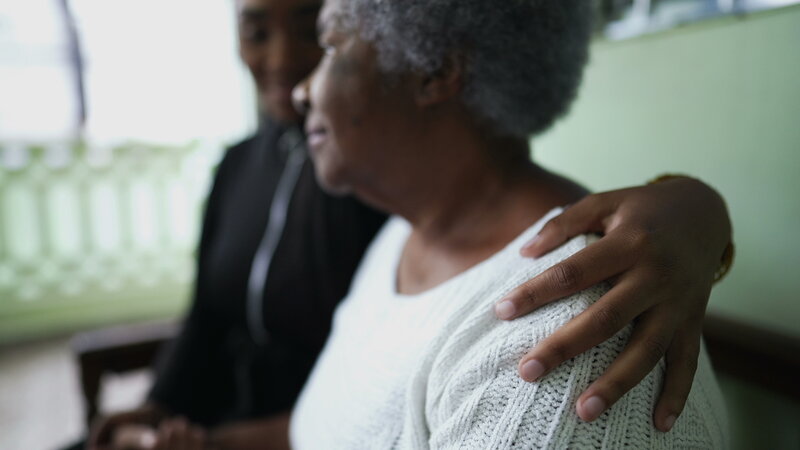What Are My After Death Care Options?

Did you know that you have options about what happens to your body after you die? As hospice care providers, we spend time educating our clients and then listening to them as they decide what they would like in terms of care for their body after they die. We refer to this as their after-death care options.
These options range from having a mortuary arrive immediately to retrieve the body to having family members or caregivers spend some time playing their favorite music or reciting a chosen poem. It can even include the return of the ancient tradition of washing and anointing (or blessing) the body to honor it and prepare it for what comes next.After Death Care Options Explained
Many of the plans clients make are reminiscent of how things used to be and a shift away from the late 20th and early 21st century’s more mechanical “wisk the body to the mortuary” approach. That said, it’s your body, and you should be able to create any after-death care options you like, assuming they comply with the law in your state and that you have a death care community willing to support your wishes.What Is After Death Care?
The term after-death care describes the finite period of time between the moment you are dead and the moment your body is in its final resting place (in whatever form that will take). Last month, we posted a blog reviewing some of the most common things people choose to do with their final remains (burying, cremating, composting, etc.). We mentioned aspects of immediate end-of-life care, but today, we’d like to discuss that sacred time window in more detail.The after-death vigil
Some of our favorite definitions of vigil, which originates from Latin and means awake (Oxford Dictionary), include:- A period of keeping awake during the time usually spent asleep, especially to keep watch or pray [or any other contemplative practice].
- A stationary, peaceful demonstration in support of a particular cause, typically without speeches.
Be intentional about “being-over-doing” to honor everyone’s presence
There is often a knee-jerk reaction by caregivers or loved ones immediately after a person dies. Our lack of practice being with those who are dying and the dead means we may jump right into “business mode.” While it gives you something to do and may distract you for a moment from an uncomfortable reality, an automatic jump into “doing rather than being” takes away from the precious essence of what just occurred. If you move into action too quickly, you miss an invaluable and once-only opportunity to be present with the one you love in their sacred (or transformational) transition. Even those who aren’t religious honor that an energetic transition has occurred, which is as meaningful at the end of life as it was at the beginning. A vigil can include the immediate day and hours preceding your death, as well as the days or a week afterward. Vigil plans are typically written out or recorded by a family member, loved one, or caregiver as part of your end-of-life plans. Once your body is declared dead, there are options about what happens next. While hospitals, nursing homes, or acute/rehab care facilities may (or may not) need to move your body to another location to honor your wishes, they are almost always willing to accommodate some type of short, after-death body care practices.Think about what resonates with you
As with your end-of-life and body-processing choices, the decisions around after-death care options should be more about what you want than what others want. Think about what resonates with you when it comes to:- The length of time you’d like your body to remain in place (if possible) before being taken to the next point on the after-death journey.
- Who you want to be there
- Who you do not want to be there
- Any music, songs, or words you’d like played/sung/read during that time
- Anything else that springs to your mind when you think about an after-death vigil